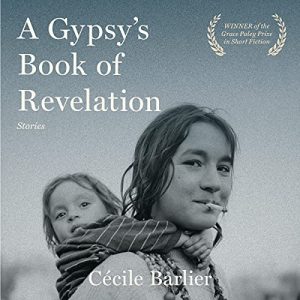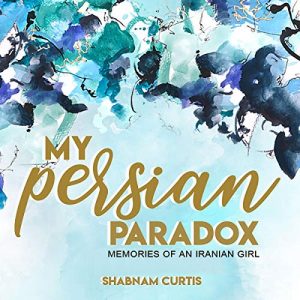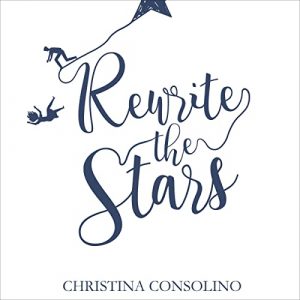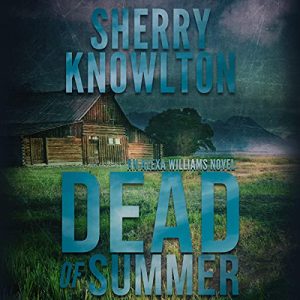Bringing a Story to Life: An Interview with Julie John
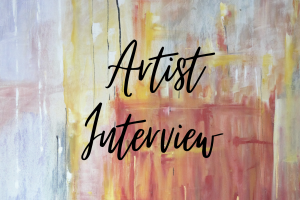 In September of last year, one of the most thrilling emails I’ve received to date arrived in my inbox. The message was from Julie John, who wrote, “Nice to meet you! I am going to narrate Rewrite the Stars for Black Rose . . .” I jumped for joy at that point, then sat down to read the rest of her lovely message. After that came a phone call and then sheer anticipation as I waited for the sample clip! As we all know, there an art to narration, but Julie makes it looks easy, in part due to her past work as voice actor for commercials and infomercials. Though she’s only been narrating audiobooks for a short time, she’s amassed a good collection in her arsenal, and her authors are pleased with the resutls. Pat LaMarche, author of Magic Diary, wrote, “The narrator for my book is so remarkable! Julie, I’m a huge fan!” and Shabnam Curtis, author of My Persian Paradox, said, “The emotions you evoked in this audiobook take the audience to a different level.” Julie is having a blast with this new turn of events in her life, and I’m certain she has several projects in progress right now, so I’m especially grateful she took the time to answer these questions.
In September of last year, one of the most thrilling emails I’ve received to date arrived in my inbox. The message was from Julie John, who wrote, “Nice to meet you! I am going to narrate Rewrite the Stars for Black Rose . . .” I jumped for joy at that point, then sat down to read the rest of her lovely message. After that came a phone call and then sheer anticipation as I waited for the sample clip! As we all know, there an art to narration, but Julie makes it looks easy, in part due to her past work as voice actor for commercials and infomercials. Though she’s only been narrating audiobooks for a short time, she’s amassed a good collection in her arsenal, and her authors are pleased with the resutls. Pat LaMarche, author of Magic Diary, wrote, “The narrator for my book is so remarkable! Julie, I’m a huge fan!” and Shabnam Curtis, author of My Persian Paradox, said, “The emotions you evoked in this audiobook take the audience to a different level.” Julie is having a blast with this new turn of events in her life, and I’m certain she has several projects in progress right now, so I’m especially grateful she took the time to answer these questions.
Christina: Thank you so much for narrating Rewrite the Stars. What’s your process for getting to know the characters you need to portray? Which characters in general do you connect with the most?
Julie: It was my pleasure! Getting to know the characters involves reading the book from start to finish, of course. I make notes when vocal traits are revealed in the text. I also have occasionally found helpful pointers in reviews of a book: sometimes readers tell me things about a character that have developed throughout a series of books, things I wouldn’t know unless I was very familiar with that author’s work. The most important part of getting to know a character is discussing the book with the author. That’s when I get really meaty suggestions about personality traits, character development and growth, and even accents and speech patterns.
I connect most with characters who know themselves best, and who are going through some real catalyzing life experiences. One that comes to mind was a kidnapping victim who was chained up in an abandoned horse barn, in Dead of Summer by Sherry Knowlton. We got to join her on a journey of emotions: from initial terror to calming herself and trying desperately to think, to eventually puzzling out a possible escape plan and digging deep within for the courage to carry it out. Sometimes I give myself chills while narrating! Those are my favorite moments!
Christina: The vocal style is important to get right for each book. For example, you’ve categorized the vocal style of Rewrite the Stars as wistful, but the list is extensive—storyteller, inspirational, articulate, etc. How do you determine what that vocal style might be? How do you change your voice to match the style?
Julie: The vocal style I discover for each book is only a broad generalization. As the plot twists, and as multiple characters of different gender and age and personality experience fear, romance, humor or depression … that generalized vocal style is very difficult to maintain. I definitely strive for consistency over the lifespan of a book, but there’s a lot of skill to really good narrating, making it sound easy, and I’m still learning. There are so many layers of meaning: how long to pause, how to be fully present, how to keep your energy coming through. As I become more skilled at this amazing craft, I hope the nuances of style come through more clearly.
Christina: When a publisher contacts you, what are your next steps? And how long does it take, on average, for you to record an audiobook? How long does the editing process take? What sorts of challenges arise in the process?
Julie: If the publisher asks for an audition, I read the audition text many times over first. Then I find it very helpful to do a dry run from memory, with no script. That’s where some real gems of natural delivery come through. I make note of those! Once I audition and I’m selected, I read the whole manuscript. This is when I like to get in touch with the author by phone if possible to go over their vision (sound vision?) for the book and characters, and get the correct pronunciation of foreign words or names. I was lucky to narrate My Persian Paradox by Iranian-American author Shabnam Curtis. It’s a lovely authentic tale of her life in politically turbulent times and her eventual break with centuries of tradition. She emailed me audio files every week so I could learn how to say things like “Shah Mohammad Reza Pahlavi” correctly. (You know you want to try that one out loud, go ahead.)
Then I dive right in to recording. I haven’t developed the vocal stamina to narrate all day; three to four hours a day is my limit. When I make a mistake, I back up and fix little verbal goofs right on the spot, and I always proof-listen to each chapter before moving on to the next one to make sure it is word perfect and has good energy.
There are approximately 9,000 words in an hour of audio, and that hour takes about four hours to produce. The corrections and proofing happen first, and then I turn the file over to my audio engineer, who is also my husband, Steve. He’s a computer genius and has come up with a very cool and calculated way to deal with the waveforms and bitrates of these audio clips, no matter how heated with emotion the words within them might be! The publishers have very strict standards about loudness levels, quietness levels, and average volume range. You wouldn’t want to be listening to an audiobook and have to constantly adjust your volume. Fun fact: did you know they actually require white noise in the file? A clean audio without noise will be rejected. Steve uses his wizardry to make me sound my best! He teases me about having no bass in my voice (well, I’m a girl, what do you expect?), and he enriches my sound a bit to make up for it.
Christina: You haven’t always voiced audiobooks. Can you give us a little bit about your background and how you wound your way into audiobook narration?
Julie: We own our own videography and web design business, so my background is art and computers. I’m sort of a right-brain/left-brain ambidextrous individual. I love programming, and I love creating art. In 2020 all our video gigs were canceled, there was no website work, and we got bored. I was listening to audiobooks to help pass the time, and suddenly I had a lightbulb moment: we could do this! We have the audio equipment, I love to talk and am a voracious reader, how hard can it be? I’m really glad we naively jumped in to this fascinating world. It’s like a rabbit hole and we continue to delve deeper and learn more as we go.
Christina: How does your background in linguistics come into play when you record an audiobook?
Julie: I have always loved languages and accents, and when I found out I could major in Linguistics in college, I was like a kid in a candy shop. I’m surprised and pleased at how often this comes in handy narrating audiobooks! Nearly every book we’ve produced has had some foreign words, and I gleefully dash to the computer to hear them pronounced by native speakers on YouTube or Forvo. I just learned how to say “Merry Christmas” in Greek, for instance. And the aforementioned Iranian book was a treasure trove. My “ling” background means I can use the International Phonetic Alphabet to spell any word I need to learn, and yes, I have that font installed (she sighed with geeky happiness).
Christina: Do you see any similarities between working in wedding and event videography and audio narration? What did you carry over from your experience in videography that you apply to narration?
Julie: There are some rules that apply to both.
A) Stand still and control your breath and emotions during the pivotal moments.
B) Aim for professional quality, even when you’re an amateur.
C) Take creative risks to make life fun.
We had some good equipment and good audio engineering skills when we began this audiobook journey. But they didn’t get us very far before we realized we had to spend quite a bit of money on better equipment and spend quite a bit of time to learn better audio engineering skills. What you find is that you’ve lived your life listening to excellent audio in professional music and television and movies. And you expect excellence, so you’ve been spoiled, and your ears are snobs. Then you spend money and time on microphones, fog lifters, pop filters, and software until your snobbish ears are at least tolerably satisfied with the quality you can produce.
Christina: If you had one author or book on your wish list of what you’d love to narrate, what/who would it be and why?
Julie: An A. Lee Martinez novel would be one of my dream narration jobs, because I adore his fanciful worlds. Things go wrong, sometimes catastrophically so, but there’s always humor and his heroes are always in a better place by the end. The characters are amazingly quirky, such as a biker gang of Cockney hitmen who happen to be undead orcs in Helen and Troy’s Epic Road Trip, a super-strong robot with a deeply inconvenient moral compass in The Automatic Detective, or a laid-back raccoon who is also the god of prosperity in Divine Misfortune. I guess longing to create quirky and meaningful connection is at the heart of all that I do, so his quirky and meaningful characters really speak to me.
Julie can be found online at https://memorylane4us.com/narration.php.
Thanks to Julie for agreeing to this interview! If you know of an author or artist who’d like to be featured in an interview (or you are an author or artist who would like to be featured), feel free to leave a comment or email me via my contact page.

